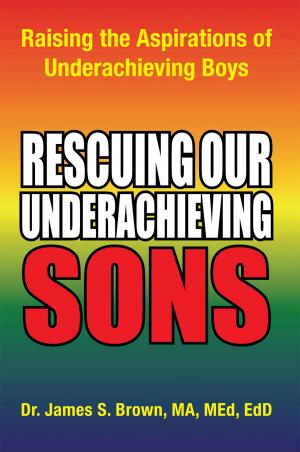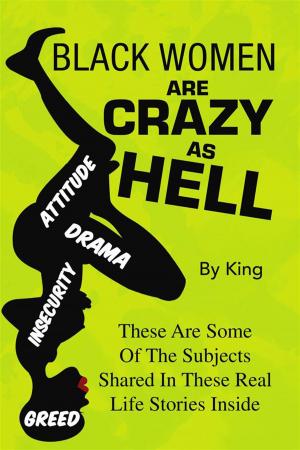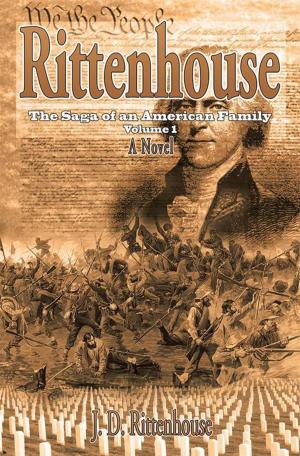| Author: | Barry Bennett Blander | ISBN: | 9781462835416 |
| Publisher: | Xlibris US | Publication: | August 1, 2002 |
| Imprint: | Xlibris US | Language: | English |
| Author: | Barry Bennett Blander |
| ISBN: | 9781462835416 |
| Publisher: | Xlibris US |
| Publication: | August 1, 2002 |
| Imprint: | Xlibris US |
| Language: | English |
"THE ABOLITIONIST" is a three-act play occuring between the years, 1851 - 1861. The protagonist is Jonah MacKenzie, a wealthy minister renowned throughout the nation for his abolitionist activities. His aristocratic wife, Elizabeth, is a partial invalid from a stroke; and their only child, Reuben, adoring his father, has gone on to become a minister as well.
In Act I we learn that Jonah is torn between an equally intense love and hatred for his son whom he and his wife have banished. Mary Beaton, a young well-to-do neighbor, once engaged to Reuben but secretly in love with his father Jonah, comes to visit and implores Jonah to find his son and reconcile. Elizabeth, overhearing Mary's entreaties, and wary of the young lady's intentions toward her husband, wheels herself in and commands Mary to leave, never to return.
Act II occurs in the past (1851) and focuses upon the abolitionist activities of father and son. We find them in the Free state of Ohio where Jonah delivers an impassioned sermon against slavery in a little church near the Kentucky (a slave state) border, dodging stones. Jonah then visits his friends, Moses and Kathleen Pendleton, leaders of the Underground Railroad. Meantime, Reuben is in Kentucky, present at a slave auction. He is smitten with love for an exquisitely beautiful mulatto named Veronica. She is purchased by a murderous slave-holder, Roland Jeffries, from whose Kentucky plantation early in the morning Reuben rescues her. He brings her to the Pendletons. Determined to retrieve the slave-girl, Jeffries barges in, shooting and wounding Jonah who is barring the way. Reuben enters in time to save Veronica and Jonah. Reuben escorts Veronica on the Underground Railroad to Canada where he proposes marriage to her. At first dissenting, pointing out the probable social consequences, Veronica yields. Though proud of his son's rescue of Veonica, upon learning that his son intends to marry a negro Jonah becomes enraged and forbids the marriage, threatening disinheritance and banishment. The act ends with a soliloquy by Reuben expressing horror at his fate.
Act III returns to the present. Elizabeth thinks she has convinced Jonah to accept a professorship he's been offered at Oxford University in England but he is secretly determined to find Reuben. After initial hesitation, but then swayed by Jonah's charm, Reuben and Veronica consent to leave Toronto and live with Jonah. When Jonah returns home to Boston he finds that Elizabeth has suffered a new major stroke which has left her in a vegetative state. Mary, once again in vain, pursues Jonah, who, in turn - flattered by daughter-in-law Veronica's coquetry and succumbing to his own weakness of mind, impulsively attempts to seduce her. Veronica's initial attraction to him quickly turns to repugnance. Once again, Jonah banishes Reuben and his daughter-in-law from his household. The play ends on a catastrophic note just before we hear the booming sound of cannon announcing the advent of The Civil War.
Barry Bennett Blander
"THE ABOLITIONIST" is a three-act play occuring between the years, 1851 - 1861. The protagonist is Jonah MacKenzie, a wealthy minister renowned throughout the nation for his abolitionist activities. His aristocratic wife, Elizabeth, is a partial invalid from a stroke; and their only child, Reuben, adoring his father, has gone on to become a minister as well.
In Act I we learn that Jonah is torn between an equally intense love and hatred for his son whom he and his wife have banished. Mary Beaton, a young well-to-do neighbor, once engaged to Reuben but secretly in love with his father Jonah, comes to visit and implores Jonah to find his son and reconcile. Elizabeth, overhearing Mary's entreaties, and wary of the young lady's intentions toward her husband, wheels herself in and commands Mary to leave, never to return.
Act II occurs in the past (1851) and focuses upon the abolitionist activities of father and son. We find them in the Free state of Ohio where Jonah delivers an impassioned sermon against slavery in a little church near the Kentucky (a slave state) border, dodging stones. Jonah then visits his friends, Moses and Kathleen Pendleton, leaders of the Underground Railroad. Meantime, Reuben is in Kentucky, present at a slave auction. He is smitten with love for an exquisitely beautiful mulatto named Veronica. She is purchased by a murderous slave-holder, Roland Jeffries, from whose Kentucky plantation early in the morning Reuben rescues her. He brings her to the Pendletons. Determined to retrieve the slave-girl, Jeffries barges in, shooting and wounding Jonah who is barring the way. Reuben enters in time to save Veronica and Jonah. Reuben escorts Veronica on the Underground Railroad to Canada where he proposes marriage to her. At first dissenting, pointing out the probable social consequences, Veronica yields. Though proud of his son's rescue of Veonica, upon learning that his son intends to marry a negro Jonah becomes enraged and forbids the marriage, threatening disinheritance and banishment. The act ends with a soliloquy by Reuben expressing horror at his fate.
Act III returns to the present. Elizabeth thinks she has convinced Jonah to accept a professorship he's been offered at Oxford University in England but he is secretly determined to find Reuben. After initial hesitation, but then swayed by Jonah's charm, Reuben and Veronica consent to leave Toronto and live with Jonah. When Jonah returns home to Boston he finds that Elizabeth has suffered a new major stroke which has left her in a vegetative state. Mary, once again in vain, pursues Jonah, who, in turn - flattered by daughter-in-law Veronica's coquetry and succumbing to his own weakness of mind, impulsively attempts to seduce her. Veronica's initial attraction to him quickly turns to repugnance. Once again, Jonah banishes Reuben and his daughter-in-law from his household. The play ends on a catastrophic note just before we hear the booming sound of cannon announcing the advent of The Civil War.
Barry Bennett Blander















